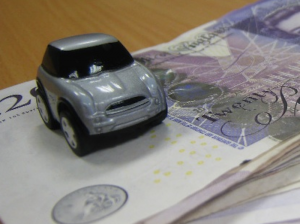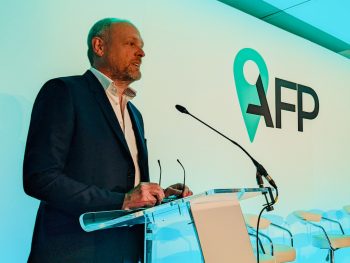Autumn Statement 2022: Main points for fleets
This Thursday’s Autumn Statement saw the Chancellor set out plans to “rebuild our economy”. Natalie Middleton reports on the main points for fleets.

The announcement on the EV BiK rates going forwards was the “biggest win from the fiscal statement”
In his first fiscal statement as Chancellor, Jeremy Hunt announced plans to tackle the cost-of-living crisis and rebuild our economy, focused on “stability, growth and public services”.
Admitting the UK “is now in a recession” during his speech on Thursday, Hunt said the £55bn package of tax rises and spending cuts outlined would help inflation drop “sharply” from 9.1% this year to 7.4% in 2023.
There were many announcements in general for businesses and the public, including billions of pounds of extra NHS and schools funding but also stealth taxes, the ability for local authorities to further increase council tax and an extended but less generous household energy price cap.
The Statement also contained some fleet-specific announcements:
EV company car tax to increase 1% from 2025
The Government is to start raising company car tax rates for electric vehicles from 2025, but with yearly increases capped at 1% until 2028 to keep rates low.
The changes set out that electric and ultra-low emission cars emitting less than 75g of CO2 per kilometre will increase by 1 percentage point in 2025/26; a further 1% in 2026/27 and a further 1% in 2027/28, up to a maximum appropriate percentage of 5% for electric cars and 21% for ultra-low emission cars.
Meanwhile, the appropriate percentages for rates for all other vehicle bands will be increased by 1 percentage point for 2025/26 up to a maximum appropriate percentage of 37% and will then be fixed in 2026/27 and 2027/28.
Paul Hollick, chair at Association of Fleet Professionals, said the announcement on the EV BiK rates going forwards was the “biggest win” from the fiscal statement.
He added: “We’ve been campaigning, along with the BVRLA and other industry bodies, to ask government to both limit any rise in Benefit-in-Kind for EVs and to provide longer-term certainty that would allow fleets to plan for the future. Here, we feel as though we have been listened to, and that well-judged measures have been put in place that will enable fleets to continue to plan for electrification through to near the end of the decade.”

BVRLA chief executive Gerry Keaney
BVRLA chief executive Gerry Keaney said the news was a “key milestone in the UK’s transition to zero-emission motoring and cements the momentum we have gathered in recent years”.
He continued: “Our #SeeTheBenefit campaign had clear asks around keeping rates low and giving drivers confidence in future rates. The Government has listened. We have engaged with MPs, the Treasury and the Chancellor directly, with our voice bolstered by input and letters from thousands of BVRLA members and industry professionals.
“Benefit-in-Kind rates remaining fair, alongside the clarity provided by years of foresight, gives us a clear path on the road to net zero. The long-term health of the market has been boosted by today’s announcement.”
Read more here.
Electric cars and vans to pay vehicle tax from 2025
Electric vehicles will no longer be exempt from Vehicle Excise Duty from April 2025 in a move to make the motoring tax system “fairer”.
The measure (see here for more details), which will be legislated for in the Autumn Finance Bill 2022, will affect both new and existing electric cars and vans. The Treasury also said the Expensive Car Supplement exemption for electric vehicles would end in April 2025.

AFP chair Paul Hollick
Paul Hollick, chair of the AFP, said this was the biggest disappointment of the Autumn Statement.
He reasoned: “This is still some time away and probably the strategic thinking is that there will be market equity between EV and ICE by that point but if we have learnt anything from the last few years, it is that predicting the shape of the new vehicle market is very difficult and this could yet prove to be a move that ultimately slows EV adoption by both new and used buyers.
“Of course, bearing in mind the £40,000 Expensive Car Supplement in VED, this could be part of a government strategy to try to make EVs more accessible, with manufacturers being effectively encouraged to keep prices below this level, especially in the light of recent price escalation following the pandemic.”
Matthew Walters, head of consultancy services and customer value at LeasePlan UK, also commented, saying: “Of course, we have concerns about what this means for the pace of electrification. But we are also concerned about what it means for the future of vehicle taxation. Is Hunt just going to keep on dragging EVs into the current tax systems and making them pay more? Or is he going to properly reform vehicle taxation, perhaps to include elements such as road pricing, so that it is properly fit for the 2020s and beyond?
“There has been speculation that the Treasury is working on wholesale reforms. There was even speculation that a consultation on road pricing would be launched. But, once again, nothing materialised. The Chancellor should be careful: this is a problem that he cannot afford to ignore.”
Read more here.
Other EV-related measures:
Although the Chancellor imposed new and higher taxes on EVs in this Autumn Statement, he also introduced some measures that will make the transition easier.

LeasePlan’s Matthew Walters
This includes the extension to 2025 of the 100% first-year allowance for companies installing charge points.
Also significant was the confirmation that the energy price cap will be set at £3,000 a year from April 2023 to March 2024.
LeasePlan’s Matthew Walters added: “This will help to keep the whole-life costs of EVs down – and protect fleets and motorists from the worst fluctuations of the energy market.
“However, it should be noted that the AER (Advisory Electric Rate at which companies pay company car mileage for EVs) has been increased to 8ppm from 5ppm from December 2022 and the Government have aligned the review of the rate to the AFR (Advisory Fuel Rate for petrol and diesel), which are decided upon quarterly.”
A potential 23% increase in fuel duty next April
Drivers will have to pay an extra 12p a litre at the pumps for petrol or diesel from next spring unless the Treasury takes action.

Nick Caller, UK MD of leasing and fleet management specialist Holman
While Hunt made no mention of fuel duty on Thursday, the Office for Budget Responsibility documents released following the Autumn Statement forecasted a 23% rise; the result of the current 5p duty cut coming to an end, combined with a scheduled rise in fuel duty based on the fiscal watchdog’s forecast for inflation for April next year. The increase would be confirmed by the Government in the Spring Statement.
The Chancellor has since said the rise wasn’t government policy and added that the Treasury would decide whether to increase the tax in its 2023 Spring Budget.
Nick Caller, UK MD of leasing and fleet management specialist Holman, called for the Government to confirm its position immediately.
“Fleets cannot operate or plan with such a huge potential cost hanging over them. An extra 12p per litre of duty on top of already exorbitant fuel bills would, undoubtedly have a major impact on all UK businesses and indeed risk the sustainability of a number of those that rely heavily on fuel to operate,” he stated.
Read more here
Other announcements
Sustained investment in infrastructure
Total departmental capital spending in 2024/25 will be maintained in cash terms until 2027/28, delivering £600bn of investment over the next five years. This includes maintaining the Government’s commitments to deliver major infrastructure projects.
Rick Green, chair of the Asphalt Industry Alliance (AIA), said: “It’s promising that the Chancellor’s speech today recognised the importance of sustained investment in infrastructure to keep the country connected, drive economic prosperity and support levelling-up. What remains to be seen is the level of funding that maintaining existing assets, including our vital local road network will receive – as a real term cut still appears inevitable due to inflation.”
Van Benefit Charge and Car & Van Fuel Benefit Charges
From 6 April 2023, car and van fuel benefit charges and the van benefit charge will increase in line with CPI. The Government will legislate by way of regulations in December 2022.
UK economic situation in general
The AFP has said that the larger picture from the fiscal statement was that the Government’s approach could “credibly be compared” to the austerity policies adopted following the 2008 global economic crisis, and that fleets would come under similar pressures to then.

LeasePlan said the Chancellor will find that fleets “are an essential part of the UK’s recovery from recession”
Chair Paul Hollick commented: “While the proportions look a little different from the last time, we are going to see a combination of very large tax increases and very large decreases in public spending, bearing a strong resemblance to the previous experience.
“Almost inevitably, this will mean that organisations will be preparing for tougher times by trying to identify ways to reduce costs right now, and their fleet operations will come under the microscope. We expect cost control and reduction – always a preoccupation for our members – to move even higher up the agenda.”
Hollick added that the industry body was working to support members through this economic crisis by freezing membership and training fees through the end of 2023.
Commenting on the economic situation, Matthew Walters of LeasePlan said: “The forecasts contained in the Chancellor’s Autumn Statement only confirmed what we knew: the UK economy is already in recession and faces a couple of difficult years ahead. This will be a challenging time for businesses, families and individuals, as we all grapple with rising prices and other financial demands.
“However, the fleet industry is well placed to meet – and overcome – these challenges. Not only have we overcome similar challenges in the past, but we will also be one of the major drivers of growth in the years to come. Fleets account for thousands of jobs and enable £billions’ worth of business to happen. They are also leading the transition to newer, cleaner forms of motoring.
“This is why we are eager to work with Jeremy Hunt – now and in future. Fleets, he’ll find, are an essential part of the UK’s recovery from recession.”

















